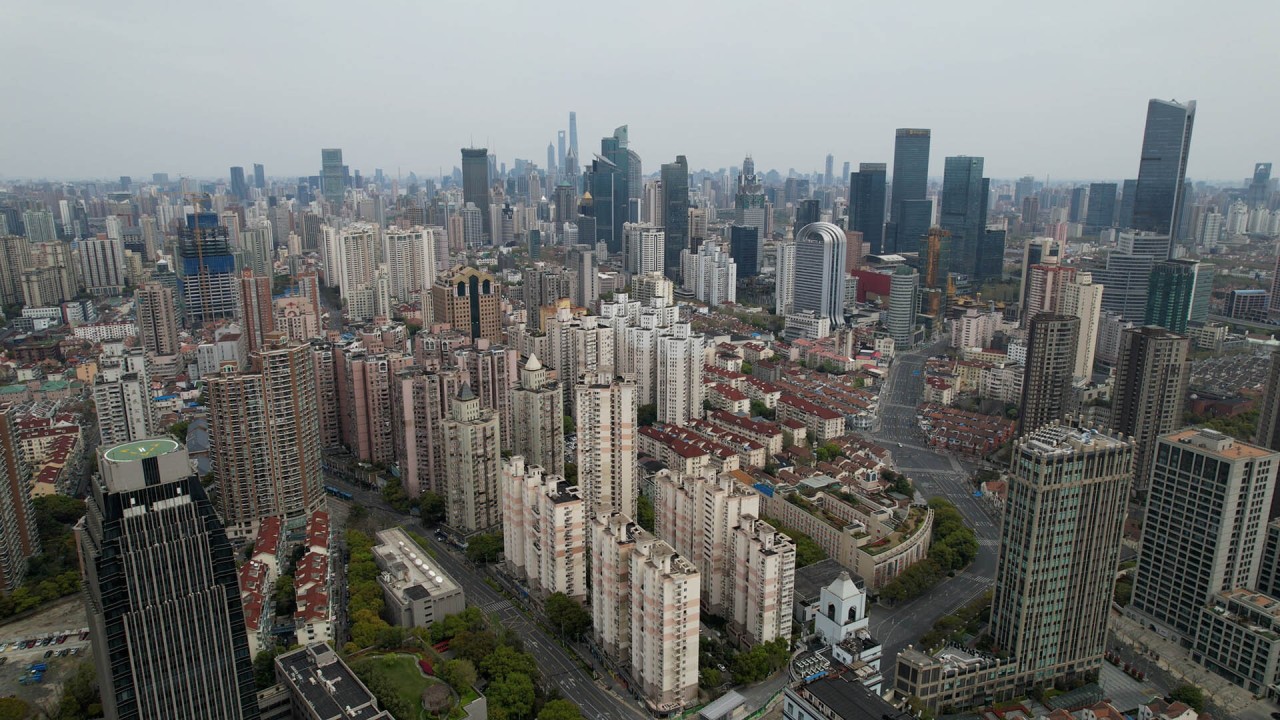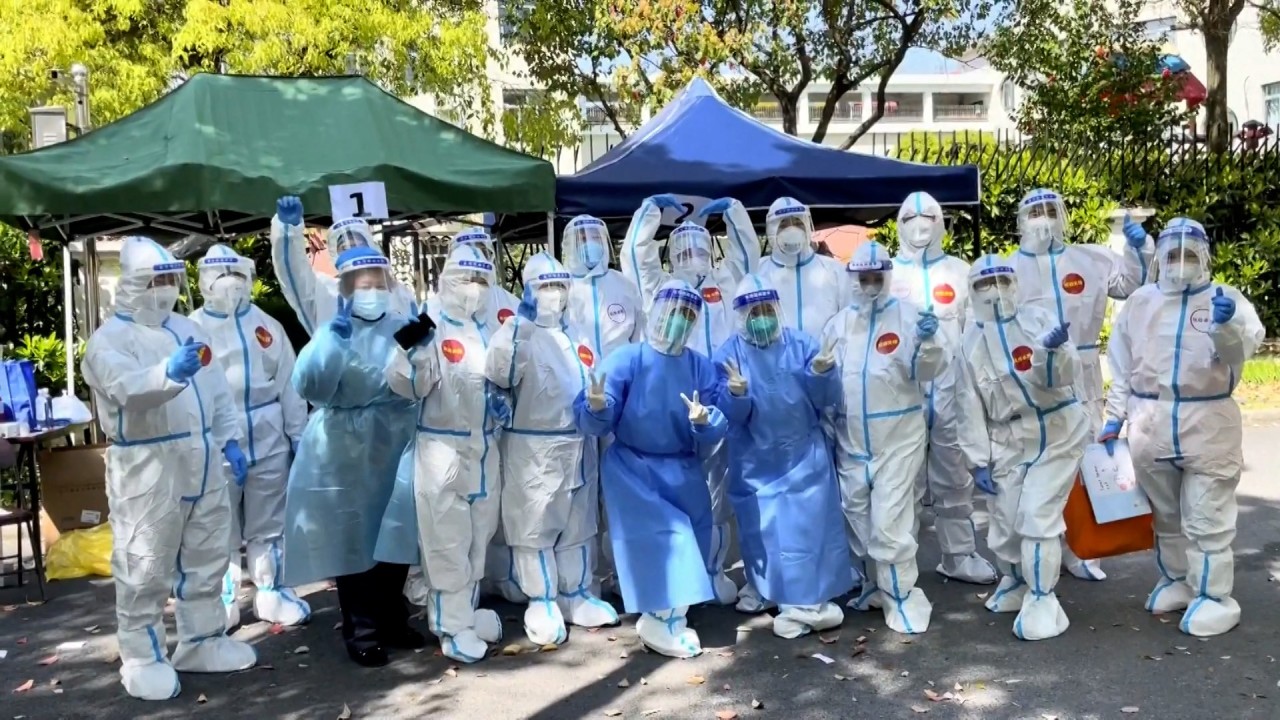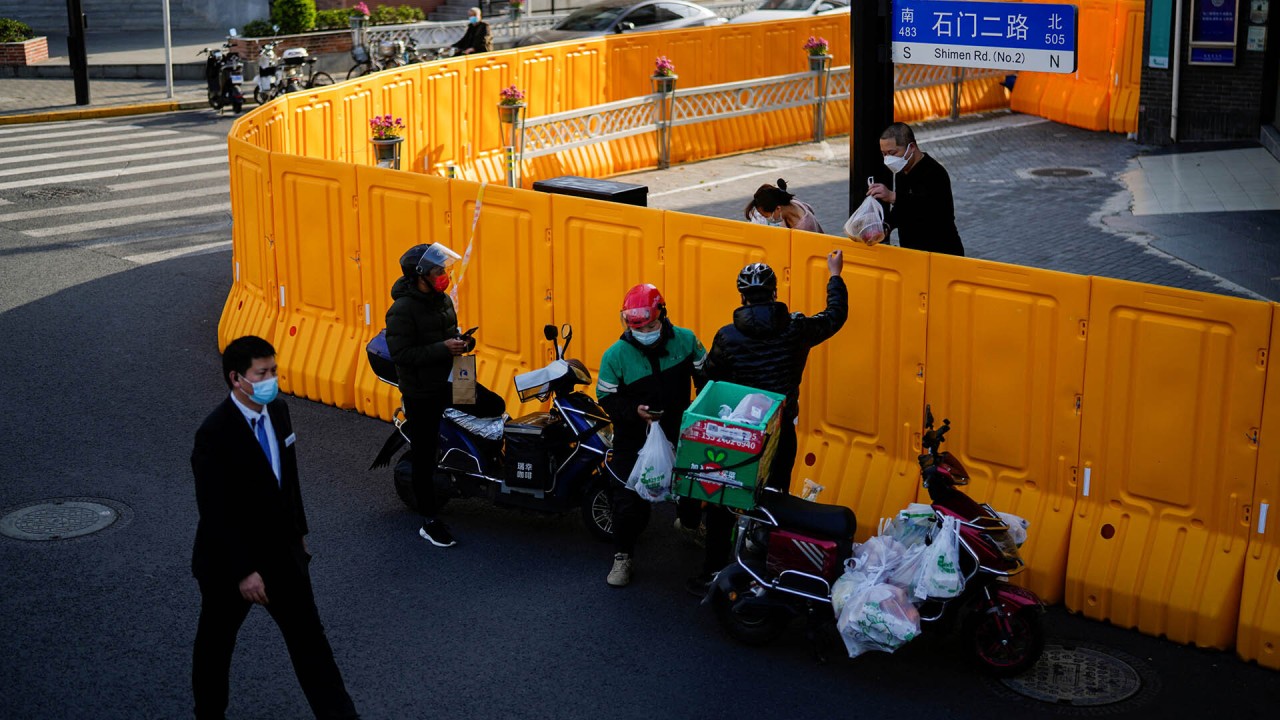
03:32
Shanghai locks down western bank of Huangpu River as Covid fight continues in China’s biggest city
Coronavirus: China’s quarantine rules raise the spectre of a Covid-made recession in the world’s second-largest capital market
- Keep a comfortable level of cash as Chinese stocks can still weaken from current levels amid fallout from Covid-19 lockdowns, strategist says
- The Shanghai Composite Index has slumped 12 per cent this year, the worst among market benchmarks in Asia-Pacific, as city enters third week of lockdown
The valuation levels, while already depressed compared with past averages as well as global peers, are not at historical extremes, he added.
Investors should, however, keep a “comfortable level of cash” to prepare for a possible rebound as policymakers in Beijing are likely to dig into their stimulus toolbox. Existing holders should resist cutting their positions, he added, recommending a contrarian stance.
The Shanghai Composite Index has slipped 12 per cent this year, the worst among market benchmarks in Asia-Pacific, while the CSI 300 Index hit a 22-month low on March 15. In Hong Kong, the Hang Seng China Enterprise Index has weakened 11 per cent this year, on top of a 24 per cent sell-off in 2021.
Xu Lirong, chief investment officer at Franklin Templeton Sealand Fund Management based in Shanghai, said policy easing has begun. He is still bullish on the outlook over the next three years, although expected market returns have been lowered.
“Investors are more bearish than last year, the correction seen in big names has been bigger than the index,” he said in a phone interview. “When investors are too bearish, it signals that the market is bottoming out.”
Shanghai, in lockdown since March 28, recorded 26,330 new infections on Tuesday, a new daily record, making up more than 95 per cent of current cases nationwide. Ports are congested while factories owned by Tesla and its rival Nio, Apple parts suppliers, and other manufacturers have halted production amid logistics and supply-chain chaos.
Goldman Sachs, Pimco and other funds have trimmed their forecasts for 2022. Under current stress, China’s 5.5 per cent growth target looks increasingly “illusional if not delusional,” Yan added.
In a severe downside scenario of a nationwide lockdown, Goldman predicted it could erase 3.3 percentage points from this year’s growth rate, and the MSCI China Index could fall 20 per cent from its current level, according to its report on April 10.
Alpine Macro said without a major overhaul of its Covid-19 rules, the economic damage may turn out to be greater than at the onset of the pandemic in 2020. The risk of a major growth relapse, or even an economic recession in the second quarter has increased substantially, it said.
“Boosting infrastructure is the only viable policy lever to mitigate the downturn,” Yan said. “Capital spending by the government is likely to support related Chinese sectors and the overall commodity complex, but consumer demand and service sectors will be severely suppressed.”
A rebound in construction activity, infrastrastructure investment, an easing of housing policies across mainland cities, and stronger credit impulse are positive signs, he added. The rewards for staying invested may be worth waiting for.
“There is no doubt that investors’ sentiment on Chinese assets is overwhelmingly bearish, and after such a dramatic drawdown, stocks typically generate outsized returns over a multi-year time horizon,” he said.



